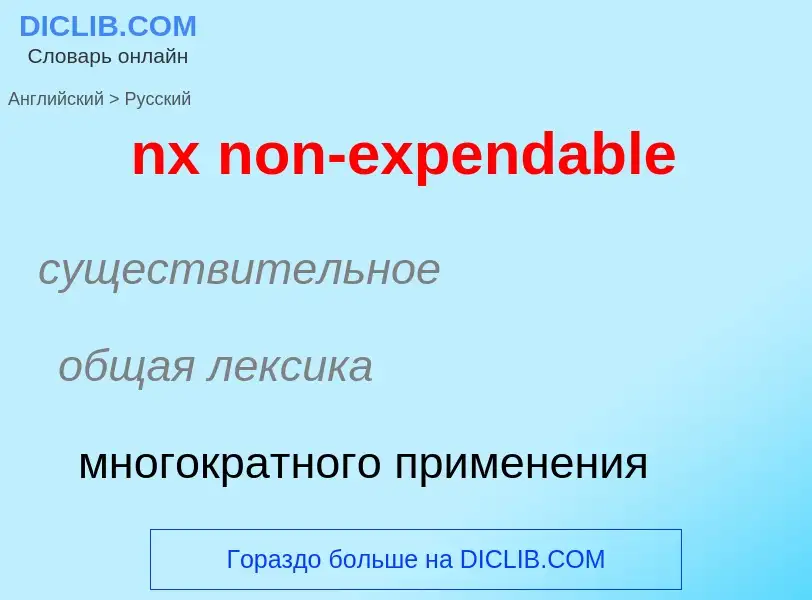Enter a word or phrase in any language 👆
Language:
Translation and analysis of words by artificial intelligence
On this page you can get a detailed analysis of a word or phrase, produced by the best artificial intelligence technology to date:
- how the word is used
- frequency of use
- it is used more often in oral or written speech
- word translation options
- usage examples (several phrases with translation)
- etymology
nx non-expendable - translation to russian
WIKIMEDIA LIST ARTICLE
Spike (NX Files); Rex (NX Files); Rio (NX Files); Sniper (NX Files); Katana (NX Files); Sabre (NX Files); Krush (NX Files); Tornado (NX Files); Kruz (NX Files); Ronin (NX Files); Malak (NX Files); Mr Black (NX Files); Mr Brown (NX Files); Tragos (NX Files); Saris (NX Files); Rico (NX Files); Golock (NX Files); Akuma (NX Files); Characters of nx files; Characters of NX Files
nx non-expendable
существительное
общая лексика
многократного применения
nx non-expendable
nx non-expendable noun многократного применения
non-combatant
CIVILIAN WHO DOES NOT TAKE A DIRECT PART IN HOSTILITIES DURING WAR
Noncombatant; Non-combatants; Non combatant; Unarmed civilians; Noncombatants; Non-Combatant; Not in the face of the enemy; Civilian immunity
non-combatant mil. 1. noun нестроевой солдат, сержант, офицер 2. adj. нестроевой, тыловой; не участвующий в боевых операциях; - non-combatant corps
Definition
Деньги не пахнут
(неодобр.) от неразборчивом отношении к тому, каким путем получены деньги. Выражение - калька с лат. pecunia non olet, которое является высказыванием императора Веспасиана. Когда сын Веспасиана упрекнул его в том, что он ввел налог на общественные уборные, император поднес к его носу первые деньги, поступившие от этого налога, и спросил, пахнут ли они. Тит дал отрицательный ответ.
Wikipedia
List of NX Files characters
This page is a list of the characters of NX Files.
- Alain Moussi – Spike, Ronin
- Stephan Roy – Rex
- Patrick Beriault – Rio
- Marc Knowles – Sniper, Akuma
- Emilie Lavoie – Katana
- Robert Baldwin – Krush
- John Purchase – Mr. Black, Mr Brown, NXISS
- Sylvie Genest – The Prefect
- Jean-François Lachapelle – Tornado
- Matthew Danielson – Lord Tragos (Episodes 3 to 8)
- Eric Robert – Lord Tragos (Episodes 11 & 12)
- Marc-André Terrieault – Malak
- Christine Picknell – Saris
- Jeff Burgess – Rico
- Erik Jobin – The Hybrid (Episode 10)
- Marc-André Gauthier – Kruz
- Jean-Marc Gagnon – Golock


